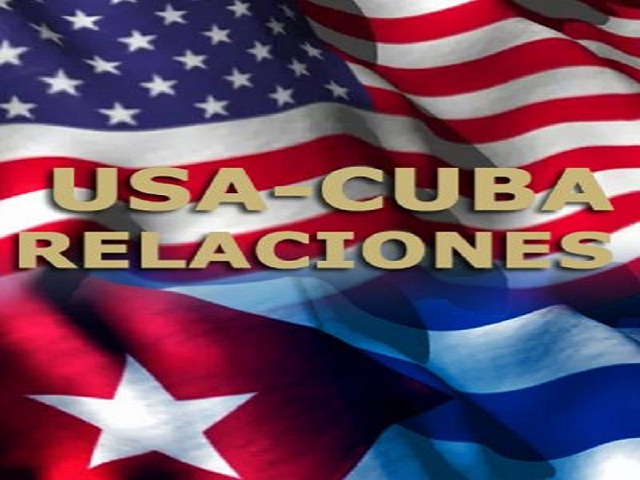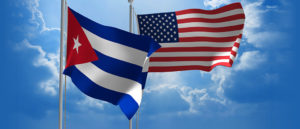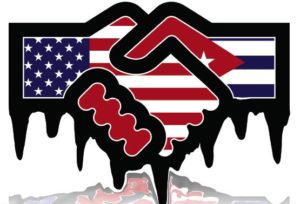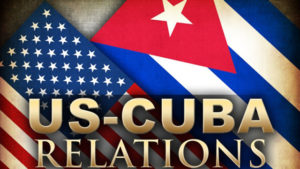 ACADEMICS FROM THE U.S.AND CUBA ANALYZE IN HAVANA BILATERAL RELATIONS.
ACADEMICS FROM THE U.S.AND CUBA ANALYZE IN HAVANA BILATERAL RELATIONS.
Some 200 Cuban and US academics analyze bilateral ties in the framework of the XVII series of talks “Cuba in the Foreign Policy of the United States of America” from two days ago and until December 14 in Havana. An annual meeting, which also brings together scholars from other countries and this time analyze the midterm elections in the United States and the administration of President Donald Trump.
Gathered in the Higher Institute of International Relations of Havana, the participants examine in particular the current situation of bilateral ties, and have coincided in affirming that both countries, neighbors and enemies for almost six decades, can live together in a climate of respect and peace.
This was stated by the director for the United States of the Cuban chancellery, Carlos Fernández de Cossío, who assured that the participants share the idea that both States can live together under a regime of respect and peaceful cohabitation. It has become clear that the Cuban and American peoples are in favor of the normalization of relations, and against the economic, financial and commercial blockade imposed by Washington on Cuba, said the official.
The American academic Philip Brenner, a professor at American University and who has traveled to Cuba for more than four decades, exemplified the opportunities that both parties can lose with the current setback of bilateral relations. He also spoke about the difficulties that his Cuban colleagues will have to attend the Congress of the Association of Latin American Studies to be held in 2019 in Boston, due to the issue of the visa.
Brenner was also concerned about the need for drugs to treat lung cancer and diabetic foot ulcer in the United States, whose patients can not access them due to blockage. The expert mentioned the vaccine developed in Cuba against lung cancer, which has been tested in the United States, and also the drug Heberprot-P, one of the most effective drugs internationally to prevent amputation by diabetic foot.
“We are losing opportunities,” he said, referring to the potential of advancing cooperation and bilateral exchanges in various areas and recommended the Cuban government “have patience”, until the American people understand the importance of cooperation and demand it to Washington.
 ACADÉMICOS DE EEUU Y CUBA ANALIZAN EN LA HABANA RELACIONES BILATERALES.
ACADÉMICOS DE EEUU Y CUBA ANALIZAN EN LA HABANA RELACIONES BILATERALES.
Unos 200 académicos cubanos y estadounidenses analizan desde hace dos días y hasta el 14 de diciembre en La Habana, los nexos bilaterales en el marco de la XVII serie de conversaciones “Cuba en la Política Exterior de los Estados Unidos de América”. Una cita anual, que también reúne a estudiosos de otros países y que esta vez analizan las elecciones de medio término en Estados Unidos y la administración del presidente Donald Trump.
Reunidos en el Instituto Superior de Relaciones Internacionales de La Habana, los participantes examinan en particular la situación actual de los lazos bilaterales, y han coincidido en afirmar que ambos países, vecinos y enemistados por casi seis décadas, pueden convivir en un clima de respeto y paz.
Así lo afirmó el director para Estados Unidos de la cancillería cubana, Carlos Fernández de Cossío, quien aseguró que los participantes comparten la idea de que ambos Estados pueden convivir bajo un régimen de respeto y cohabitación pacífica. Ha quedado claro que los pueblos cubano y estadounidense están a favor de la normalización de relaciones, y en contra del bloqueo económico, financiero y comercial impuesto por Washington a Cuba, aseguró el funcionario.
El académico norteamericano Philip Brenner, profesor de la American University y quien ha viajado a Cuba durante más de cuatro décadas, ejemplificó las oportunidades que ambas partes pueden perder con el actual retroceso de relaciones bilaterales. Habló además sobre las dificultades que tendrán sus colegas cubanos para asistir al Congreso de la Asociación de Estudios Latinoamericanos que se celebrará en 2019 en Boston, debido al tema del visado.
Brenner también se mostró preocupado por la necesidad de medicamentos para tratar el cáncer de pulmón y la úlcera del pie diabético en Estados Unidos, cuyos pacientes no pueden acceder a ellos debido al bloqueo. El experto mencionó la vacuna desarrollada en Cuba contra el cáncer de pulmón, la cual ha sido probada en Estados Unidos, y también el fármaco Heberprot-P, uno de los medicamentos más efectivos a nivel internacional para evitar las amputaciones por el pie diabético.
“Estamos perdiendo oportunidades”, comentó, en alusión a las potencialidades de avanzar en la cooperación y los intercambios bilaterales en diversos ámbitos y recomendó al gobierno cubano “tener paciencia”, hasta que el pueblo estadounidense comprenda la importancia de la cooperación y se la exija a Washington.
Agencies/ Xinhua News/ Internet Photos/ Arnoldo Varona/ www.thecubanhistory.com
THE CUBAN HISTORY, HOLLYWOOD.





